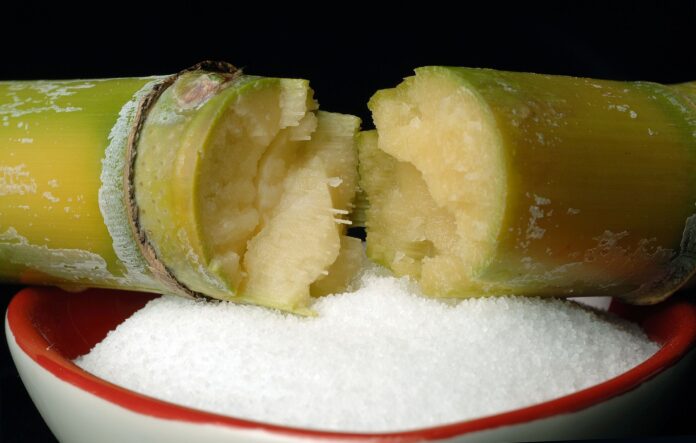Planning Minister Ahsan Iqbal has directed the development of a medium-term framework for deregulating Pakistan’s sugar industry, stressing the need for data accuracy, crop zoning, and backward integration to enhance productivity and export potential.
Chairing a meeting of the Prime Minister’s Committee on Sugar Stocking, Forecasting, and Planning, Iqbal emphasized the importance of effective coordination among government institutions to ensure timely and evidence-based decisions. The meeting was notified in December 2024 to address challenges in sugar stock monitoring and export planning.
The meeting was attended by Federal Minister for Industries and Production Rana Tanveer Hussain, Minister of State for Finance Ali Parvez Malik, and representatives from the Federal Board of Revenue (FBR), SUPARCO, and the Pakistan Sugar Mills Association (PSMA), among others.
The PSMA representatives highlighted persistent issues with obtaining accurate data, noting that most sugar mills fail to provide timely information. They acknowledged FBR’s collaboration last year, which improved data verification, and suggested establishing a single data source to enhance accuracy.
PSMA also proposed an annual review of sugar mill performance, expressing concerns about financial paralysis caused by price controls, despite successful exports. They praised the government’s track-and-trace system for curbing sugar smuggling.
Minister Iqbal called for greater collaboration with SUPARCO for satellite-based data gathering and directed relevant ministries to address data inconsistencies. “Experts and researchers must unify data sets to solve the problem of variance,” he said, emphasizing the importance of accurate reporting for policy decisions.
He proposed a medium-term master plan spanning 10 years to deregulate the sugar industry, focusing on improving sugar recovery rates, producing surpluses, and boosting exports. The minister also stressed the significance of crop zoning to maximize agricultural productivity and protect farmland from incompatible use.
Iqbal highlighted backward integration as a means to enhance efficiency in the sugar industry, citing its success in other sectors. He noted that while Pakistan ranks as the fifth-largest sugar producer globally, its yield efficiency remains alarmingly low.
“Pakistan’s sugar industry must prioritize productivity beyond mere production. Backward integration can provide faster growth, similar to the progress made by FMCGs,” he added.
A new committee, chaired by the Chief Statistical Officer and including representatives from the Ministry of Industries, FBR, PSMA, and SUPARCO, will be established to address data discrepancies and streamline policy-making.
The committee will work under the Terms of Reference (TORs) to analyze data sources related to sugar production, consumption, and stocks; assess causes of data variations; and develop a foolproof mechanism for maintaining credible information. It will also propose a medium-term framework to ensure efficient market development and benefit consumers, the industry, and the economy.
Iqbal reaffirmed the government’s commitment to balancing domestic sugar producers’ needs with stable prices and adequate supply for consumers. He urged stakeholders to prioritize long-term planning and productivity, assuring the industry that their challenges would be addressed on priority.




